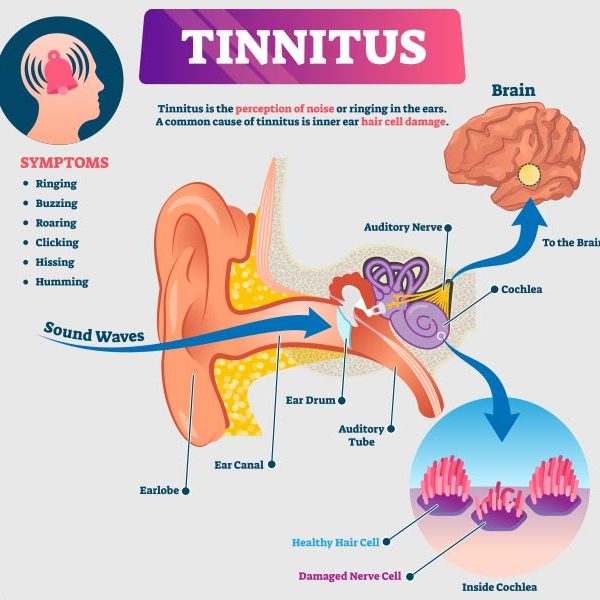Sound waves travel through the ear canal to the middle and inner ear, where
hair cells in part of the cochlea help transform sound waves into electrical
signals that then travel to the brain's auditory cortex via the auditory
nerve. When hair cells are damaged — by loud noise or ototoxic drugs, for
example — the circuits in the brain don't receive the signals they're
expecting. This stimulates abnormal activity in the neurons, which results
in the illusion of sound, or tinnitus.
Why Do I Hear Noise In My Ears?
It's believed that tinnitus can occur anywhere along the auditory pathway,
including in the outer, middle, and inner ears as well as the auditory
cortex of the brain. Damage to the cochlea's hair cells is a typical cause
of tinnitus. Sound waves are converted into nerve signals by these cells.
Similar to dialling up the volume on a radio to find a station, the brain in
fact "turns up the gain" on its auditory pathways in an effort to detect the
signal. Electrical noise in the form of high-pitched or low-pitched tinnitus
occurs when hearing loss falls in the high-frequency or the low-frequency
ranges, respectively. To make up for the lack of input, the brain generates
abnormal nerve signals, which is similar to the sensation of phantom limb
pain in an amputee.
Researchers are still looking into the specific biological process that
causes hearing loss and tinnitus. We do know that losing particular sound
frequencies alters how the brain processes sound. The brain adapts and
changes when it receives less external stimulation around a given frequency.
Tinnitus may be the result of the brain's neural pathways compensating for
the loss of sensory hair cells by increasing sound sensitivity. This might
account for some people who suffer from tinnitus being oversensitive to loud
sounds.

